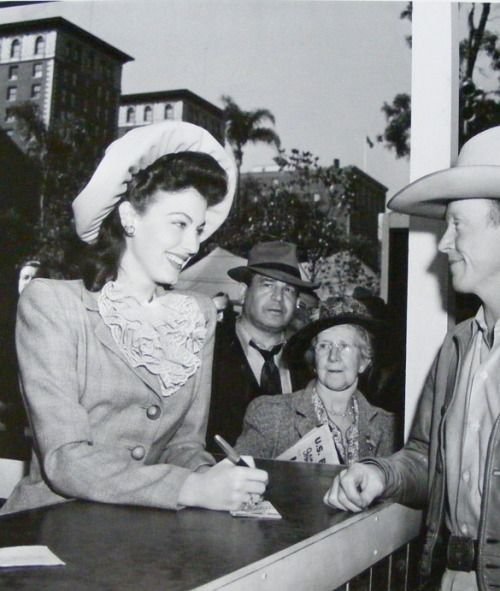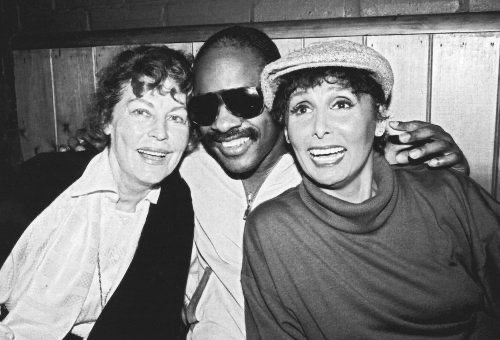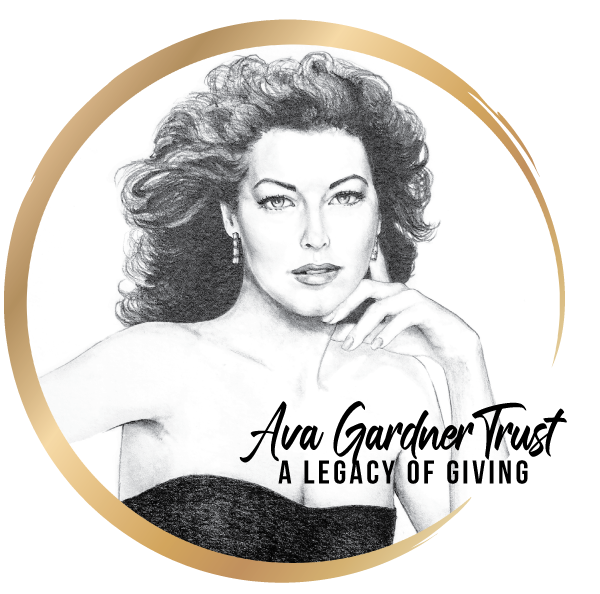Activism
Politics
To understand Ava Gardner’s political beliefs, one must consider the era in which she grew up and the way the era of the Great Depression influenced her world view. Her views were shaped by President Roosevelt’s “New Deal” liberalism. This was a government active in regulating the economy and society to achieve what it perceived as fairness. The “New Deal” was focused on relief and recovery from the economic depression. As a hardworking, modest farmer of eastern North Carolina, Ava’s father, Jonas (pictured with cigar), overwhelming supported and admired Franklin Delano Roosevelt. Ava grew up in a home where Roosevelt was a hero!
Ava assimilated her keen interest in politics and the political views of her father. She said she was proud of her American citizenship and always voted, getting her ballot from the American Embassy in the country where she was at election time. She always took the time to vote.
Liberalism has evolved over time. Ava’s liberalism was almost a moral philosophy based on individual rights and equality before the law and in society at large. Ava was broad minded, respecting views and beliefs that differed from her own. She often quarreled over political stances with her brother, Jack, who was a North Carolina state legislator. These disagreements, however, were part of their brother-sister dynamic.
She was tolerant of change, not bound by tradition. She believed in the goodness of humanity and protection from arbitrary authority. She held to beliefs in individualism, civil liberty, religious freedom, and minority rights. Not being bound by traditional ways or beliefs, she was open-minded, tolerant, compassionate, and generous. Her empathy and her ability to walk in another person’s shoes were traits instilled in her from a young age, which she witnessed while coming of age in rural, tight-knit, farming communities. Her character was positively correlated to the liberalism she grew up assimilating. Ava wanted elected officials to pay attention to the issues affecting citizens and give more voice to underrepresented groups. She wanted politicians to create sustained progress for economic and social change.

Ava Gardner selling war bonds and signing autographs as "Mrs. Mickey Rooney" at Victory House in Pershing Square, Los Angeles, 1942.

Ava Gardner and many of her celebrity peers volunteered at the Hollywood Canteen, a club offering free food, dancing, and entertainment for servicemen who were training or stationed in California before going overseas to fight in World War II.

Shortly after they married in 1942, Ava Gardner and Mickey Rooney embarked on a multi-city war bond tour which culminated with a trip to Washington D.C. to attend President Roosevelt’s Birthday Ball.

MGM stars Ava Gardner (second from right) and Roddy McDowall (far left) visit with members of the U.S. Navy during WWII.

Ava Gardner and Frank Sinatra visit with soldiers at Tripler Army Medical Center in Honolulu, HI and sign a service member's cast.

Ava Gardner and Frank Sinatra actively supported Democratic candidate Adlai Stevenson in his 1952 bid for president. Before running for the highest office, Stevenson served as the Governor of Illinois. He later served as the U.S. Ambassador to the United Nations under Presidents Kennedy and Johnson.

The fall of 1952, Ava Gardner and Frank Sinatra signed the "Good Citizens" pledge sponsored by the New York World Telegram & Sun newspaper.
Civil Rights
“Ava Gardner lived her life according to her beliefs,” Roddy McDowell.
She did not participate in marches or protests, but lived her life true to her moral compass. As a child she was around black people every day, and she did not see color. Her sweet friend and playmate, Virginia, the child of the black woman who worked with Mama Gardner at the Brogden teacherage, and was about her same age, was her constant companion. When Ava was missing, the family knew to look first at Virginia’s home. Beatrice, Ava’s sister, remembers finding her there, at their dinner table, the only little white face, looking very happy and smiling broadly. She was also great friends with a black boy who showed up at the beginning of every tobacco barning season. He stayed in the Gardner home and had his meals with the family.
At the end of her marriage to Artie Shaw, Ava met Mearene Jordan who became her assistant for decades. Both Ava and Rene, as Ava called her, said their relationship was like the relationship of sisters. Ava protected Rene and if she was denied entrance to a restaurant or other establishment, Ava left as well.
In 1948, in spite of warnings from MGM, Ava participated in the presidential election campaign of Henry Wallace, a liberal candidate when it came to individual and civil rights. She believed he was a “good man.”
Her black friends were numerous including a wonderful friendship with Lena Horne which lasted from their early days in Hollywood through the rest of their lives. Lena said of her friend: “Ava and I sort of took to each other right away because she is Southern, she is basic, she is down, she is laid back, and because she was raised under the same sort of circumstances as I was raised. We just naturally went toward each other. She came from North Carolina. She’d lived with black and white people, poor all her life. I was sent to live in Georgia when I was five with poor people all my life. So she and I got together, see. And because she had a big mouth like mine, we had no subtlety, no discretion, and before we thought we spoke which, in those years, was not always the right thing to do.”
In 1969, Ava co-chaired a fundraising event at the Waldorf Astoria in New York City for the Free Southern Theatre, a New Orleans-based organization that provided free theatre for mostly Black communities of the rural South. The special event raised $50,000 for the organization.
Because of Ava’s open-mindedness and beliefs in equality, her life was richer.

Trailblazing actress and performer Dorothy Dandridge visiting her friend Ava Gardner on the set of "Ride, Vaquero!" (1953) while she was working on the MGM film "Bright Road" (1953).

Ava Gardner chatting with musical pioneer of Bebop Dizzy Gillespie. Ava loved music, especially jazz, and she counted many famous musicians among her closest friends.

Ava Gardner and dancing with jazz pianist, composer, and famed orchestra leader Duke Ellington in Mary 1969 at the Free Southern Theatre’s soul food dinner at the Waldorf Astoria in New York City.

Ava Gardner celebrating her birthday with her older brother Jack Gardner (right) and one of her best friends and former personal assistant Mearene "Rene" Jordan.

Ava Gardner out in the mid-1980s with legendary singer-songwriter Stevie Wonder and her long-time friend, groundbreaking actress and singer Lena Horne.
“I liked Miss G from the very first moment. I suppose when my older sister said for me to go down there and look after that girl, I took that responsibility seriously. For the rest of her life, I took it seriously, and she did the same of me. She was fun, and very sharing. If I ever made her anything, from a cup of coffee to a martini, she’d say, ‘Well, where’s yours?’ She wasn’t what we thought of as the stereotypical Southerner. We’d go to clubs during the time before integration, and if they threw me out, she’d leave too. So, to keep her, they’d tolerate me.”
— Mearene Jordan, Housekeeper and Companion






